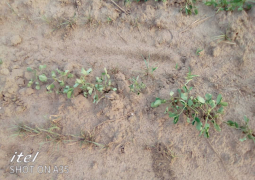
Creative artists and groups have been making various drama sketches, poems, songs and music videos on covid-19 that are currently being compiled by the Risk Communication, Social Mobilisation and Community Engagement sub-committee of the National Health Emergency Centre (NHEC) in Kotu, Kanifing Municipality.
While many videos and songs on various topics such as handwashing and social distancing are being released, few touch on the rising issue of stigma and discrimination of persons affected by covid-19. In filling this crucial messaging gap, the students of Film Studies of the University of The Gambia (UTG) School of Journalism and Digital Media (SJDM) have acted and released a short video film advocating non-discrimination and non-stigmatisation of victims.
Patients do recover and go back to their homes but what happens afterwards only they can tell. This video has therefore taken a vital point in showing the world that while we struggle to mitigate the effects of the covid-19 pandemic on our economies, we must not forget key aspects of social recovery and reintegration. The educative short film equally elaborates the need for families and communities to embrace covid-19 victims and help them recover psychologically rather than putting pressure or even abandoning them due to their plight.
Eight students of the 2019-2020 batch at the UTG School of Journalism and Digital Media (SJDM) volunteered to perform this drama and they expressed a great deal of maturity and understanding of the subject matter.
The students were mentored and guided by respected filmmaker Prince Bubacarr Aminata Sankanu, a prominent member of the Risk Communication and Community Engagement sub-committee of the National Health Emergency Committee (NHEC). Sankanu who expressed his gratitude to the students for their innovative approach, said filmmaking is teamwork and the challenge of practicing social distance while shooting a film has added value to the skillsets of the students. “It is important to understanding that professional film students entail a lot of practical work. The online lectures are good especially for the theoretical parts but for the lessons to stay, practice remains sacrosanct” the veteran filmmaker and lecturer explains.
He added that through their participation in the national covid-19 sensitisation exercise, the students have not missed out on the preventive closure of schools. They will get good grades for the short film which is counted as practical semester assignments while gaining national and international exposure as rising journalists and filmmakers. Prince Sankanu expressed his gratitude to the dean of the School of Journalism and Digital Media (SJDM), Nana Grey-Johnson, staff of SJDM and the UTG Administration for their understanding and support.
He equally thanked the director of Health Promotion and Education at the Ministry of Health, Mr. Modou Njai who is the leader of the Covid-19 Risk Communication Team for endorsing and including the short movie in the official Covid-19 messaging catalogue.
The students behind the covid-19 stigma video who also run Youth Channel Gambia (YGG) to horn their practical skills on Film Studies include Fatou Sowe, Oumie Awa Bah, Samuel Williams, Aminata Badjie, Sulayman Saye, Alieu Jabbie, Binta Jarju, Fatou L. Drammeh.
In addition to the film, the students would be making a music video on the same subject of covid-19 stigma and discrimination after Ramadan.
Ms. Ida Kebbeh, a 3rd-year student of the School of Journalism and Digital Media edited the footages.





